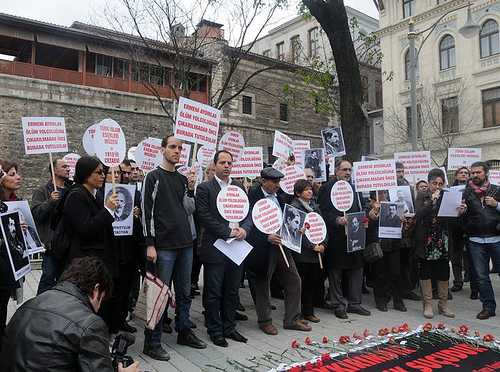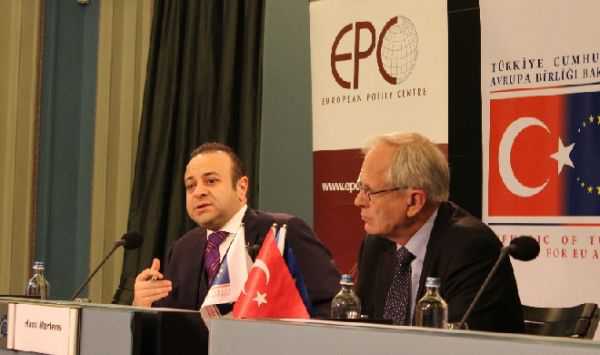By Associated Press, Published: April 17
BRUSSELS — A prominent European lawmaker scolded Cyprus’ bailout creditors Wednesday for failing to insist on the ethnically split country’s reunification. Such a move, he argues, would boost growth through stronger business ties with neighboring Turkey.
Daniel Cohn-Bendit, a lawmaker with the Green party, said a sustainable economic recovery for the eastern Mediterranean island could only be achieved through closer ties with the region’s biggest and most dynamic economy, Turkey.
Cyprus faces years of economic hardship after a protracted banking crisis that has seen it become the fifth European Union country that uses the euro to seek rescue loans from international creditors. The country’s economy is estimated to contract a whopping 13 percent over the next two years. By contrast, the International Monetary Fund predicts Turkey will grow 3.4 percent this year and 3.7 percent next.
Cyprus was split into an internationally recognized Greek-speaking south and a breakaway Turkish-speaking north in 1974 when Turkey invaded after a coup by supporters of union with Greece. Turkish Cypriots declared an independent northern state in 1983 that is only recognized by Turkey, which maintains 35,000 troops there.
The last U.N.-brokered attempt to reunify the island, which began in 2008, has stalled. Cyprus came closest to a peace deal in 2004, when a U.N.-drafted agreement was approved by two thirds of Turkish Cypriots. But the agreement was rejected by three quarters of Greek Cypriots, who considered it weighted against them.
Some analysts suggest that Cyprus should swiftly seek a reunification deal with the northern part as that would boost its economy. A political agreement with Turkey could also make it easier for Cyprus deliver to its newly found offshore gas reserves to European markets.
“Turkish investors will only invest in Cyprus when there’s a reunification,” said Cohn-Bendit, who is also co-chairman of the European Greens’ parliamentary caucus. “The business model must come through reunification. A reunification within the European Union.”
He said Turkey, whose long-running talks for possible EU membership have made little progress in years, would have a much greater incentive to work with a reunified Cyprus. The country joined the EU in 2004 and the monetary union four years later, but only the Greek-dominated south of the island enjoys the benefits of membership.
Fast-growing Turkey, with a population of almost 75 million, boasts an annual output of about $800 billion, while Cyprus’ totals about 18 billion euros ($24 billion), according to the IMF.
Cyprus lies only about 100 kilometers (62 miles) south of Turkey, but almost 1,000 kilometers away from Athens, the capital of its biggest EU trading partner, Greece.
Last month, Cyprus clinched a bailout deal under which it will receive 10 billion euros ($13 billion) in rescue loans. In return, the country is imposing extensive losses on deposits over 100,000 euros at its two biggest banks, the Bank of Cyprus and Laiki. It has also set up capital controls to avoid a bank run, the first time such measures have been introduced since the launch of the euro in 1999.
via EU lawmaker urges pushing for Cyprus’ reunification to profit from Turkey’s economic potential – The Washington Post.






![Concerning “Turkey and Armenia at Loggerheads”[1]: Why Turkey should not do what David.L.Ellis recommends 8 Concerning “Turkey and Armenia at Loggerheads”[1]: Why Turkey should not do what David.L.Ellis recommends](https://www.turkishnews.com/en/content/wp-content/uploads/2022/12/armenian-kids-turkish-flag.jpg)